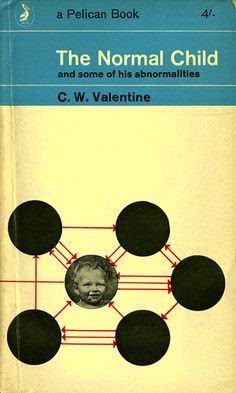From the L.R. Reeve* collection of short sketches of people he had met - this affectionate piece about psychologist C.W. Valentine (1879-1964). He wrote many books on psychology and was the editor of The British Journal of Educational Psychology for its first 25 years. Wikipedia (so far) knows him not.. Reeve saw him lecture several times...
Professor C. W. Valentine
Forty years ago I used to believe that Professor C. W. Valentine was one of the most reliable psychologists in England. Time has never changed my opinion, for on the many occasions when I have listened to him, or read about him he has always left me with the same impression of steadiness and sense of proportion so that one always felt that any declaration from him was the result of an objective mind which had arrived at a conclusion after exhaustive study.
I can, however, express a decided opinion on one of his books: an early volume on intelligence tests. Years ago an elderly colleague of mine was pestered by his newly qualified daughter to advise her on the best intelligence tests. He came to me. I took Valentine's book to school. We went into a huddle. He gave the tests according to instructions. Because I didn't know his boys I marked and assessed the results. A few days later he came to me beaming. "I have known every boy for at least six months and your marks are perfect." Salutations to Professor Valentine. And if the book in question is now out of print so much the worse for intelligence tests and education in general. No doubt the usual gibe 'old-fashioned' will be objected by superficial minds. Well, eating, drinking, breathing, speech and many other things are of ancient custom; when, therefore, the phrase ‘old-fashioned, is presented one can usually suspect a feeble argument, something like a lawyer's dictum, "When you have a weak case attack the man."
Continue reading


